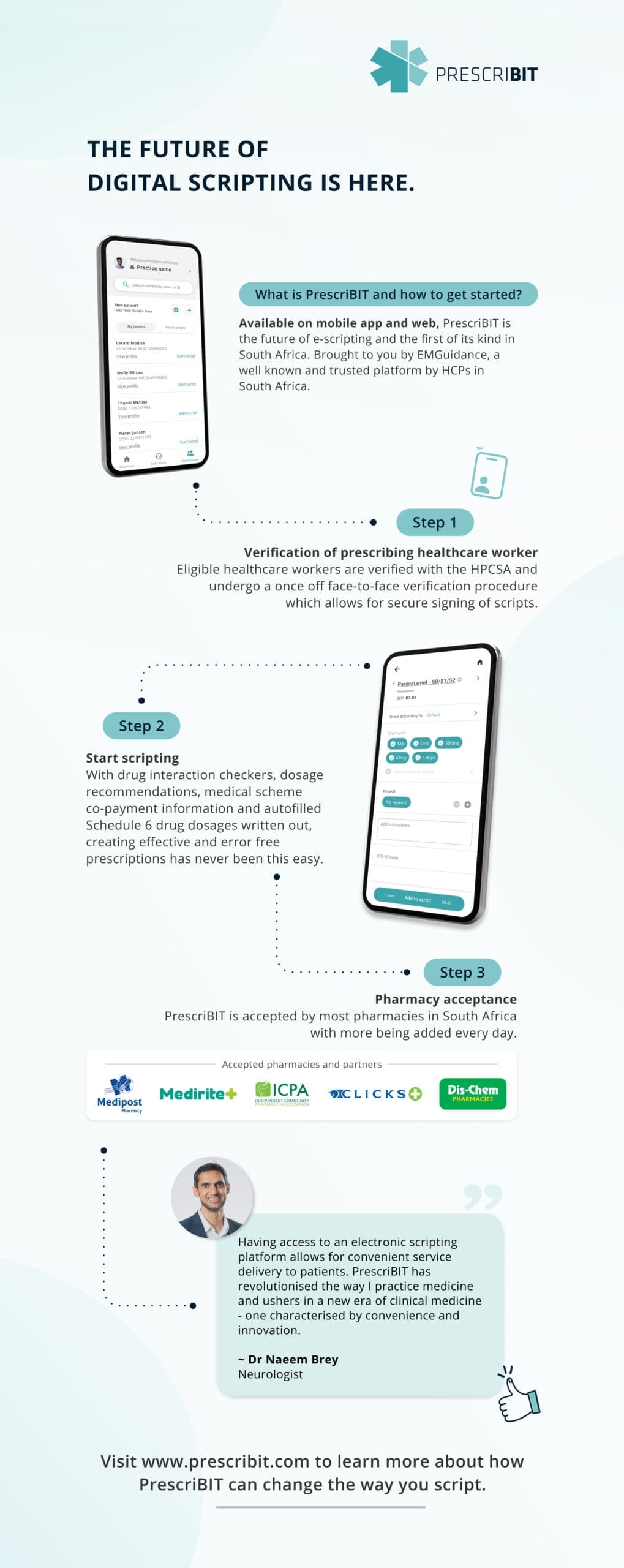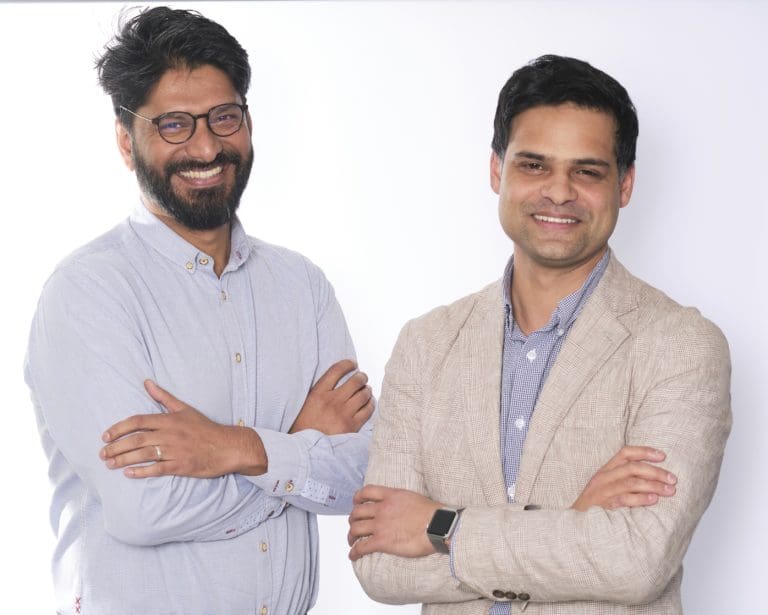Digital healthcare platform EMGuidance has launched a new digital prescription tool that promises to transform the way prescriptions are managed and shared in South Africa. The new tool, PrescriBIT, will reduce workflows for healthcare providers and pharmacies, while making medication safer, more cost-effective and easier to collect for patients.
The tool will allow doctors to quickly generate digital prescriptions from an app or a PC. This offers them a host of benefits, including improved accuracy, time-saving, improved patient safety and compliance, and increased efficiency. Pharmacists will benefit through scripts having a trackable history, more efficient workflows and a decrease in dispensing errors.
The tool is good news for cash-strapped consumers as well. It automatically checks medical scheme and pricing information at the point of prescribing. This means doctors can see if certain medicines are covered by the patient’s medical aid, or if there is a co-payment involved, and how much the script could cost the patient in real terms. The system suggests cheaper alternatives or generics where possible and appropriate, and the doctor can then adjust their scripts accordingly.
Dr Mohammed Dalwai, the co-founder and Chief Product Officer at EMGuidance, said that PrescriBIT solved several of the issues facing the South African medical industry. These include rising healthcare costs, the need for greater transparency in the sector, and the ability to reduce drug errors and deliver improved patient outcomes.
“The world of medicines is in a state of constant change, with new drugs, science and data around the safety and efficacy of medicines emerging almost daily, not to mention changing scheme rules. This makes it practically impossible for any doctor to stay abreast of the latest developments without the support of a digital tool. By making the system as smart as possible, we’re saving doctors time and reducing costs and risks,” said Dr Dalwai.
Currently, some healthcare professionals across South Africa share scripts across WhatsApp, email and other means. Many are not legal. To be legal, a prescription must be signed either in person, or in the case of a digital script, using what is called an Advanced Electronic Signature (AES).
“PrescriBIT’s use of AES means its scripts are legally compliant with legislation. Because they are immutably trackable, pharmacists can safely accept and dispense all schedules, including S6, digitally. They can seamlessly access and process these prescriptions, making the dispensing process faster and more accurate. Doctors can then easily track their patients’ prescriptions, ensuring their patients are receiving the care they need,” said Dr Dalwai.
Although patients can view the list of prescribed medications, they cannot view, edit, or print the full prescription, which mitigates the risk of script tampering and fraud. However, the digital script gives them the autonomy to choose their dispensary themselves – and in the case of repeat scripts, to change dispensaries every month, if they choose, without any further admin or effort.
“In an era marked by the rapid digitisation of healthcare, the launch of this tool is a major milestone in improving patient care and data security. Thanks to the smart use of technology, healthcare providers and pharmacies can now operate with greater peace of mind, knowing that patients are getting the safest, most cost-effective treatment possible,” said Dr. Yaseen Khan, co-founder and CEO at EMGuidance.
“As digital tools gain traction across the healthcare landscape, ‘clinically smart’ technologies driven by local data will be key in addressing our unique healthcare and economic challenges, and can help transform the entire sector,” said Dr Khan.


